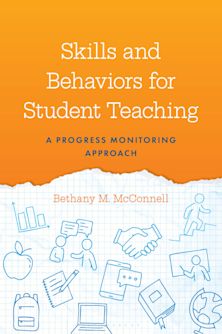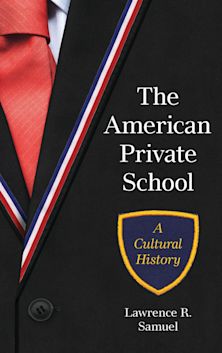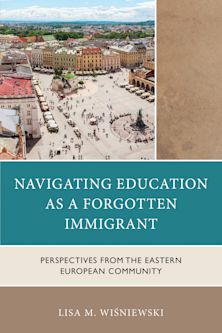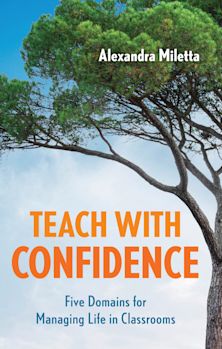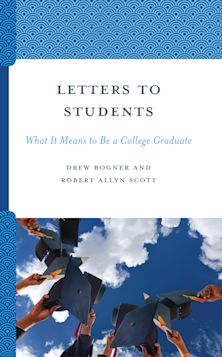- Home
- ACADEMIC
- Education
- Education - Other
- From Family Collapse to America's Decline
From Family Collapse to America's Decline
The Educational, Economic, and Social Costs of Family Fragmentation
From Family Collapse to America's Decline
The Educational, Economic, and Social Costs of Family Fragmentation
This product is usually dispatched within 3 days
- Delivery and returns info
-
Free US delivery on orders $35 or over
You must sign in to add this item to your wishlist. Please sign in or create an account
Description
Very high rates of family fragmentation in the United States are subtracting from what very large numbers of students are learning in school and forever holding them back in many other ways. This in turn is damaging the country economically by making us less primed for innovation while also making millions of Americans less competitive in an increasingly demanding worldwide marketplace. All of which is leading – and can only lead – to deepening class divisions in a nation which has never viewed itself or operated in such splintered ways. What can be done to reverse these severely destructive trends, starting with reducing the enormous number of children forced to grow up with only one parent living under the same roof? What educational reforms are most likely to help under such demanding circumstances? And as dangerous as the situation is, why do leaders in education and other fields persist, for both understandable and less-worthy reasons, in dancing around profoundly important questions of family breakdown to the point of contortion and ultimately failure?
Table of Contents
2. Fragmentation's Effects on "Every Conceivable Measure"
3. Fragmentation's Effects on Educational Performance
4. Fragmentation's Effects on Economic Performance
5. Strengthening Learning
6. Strengthening Marriage
7. Conclusion
Product details
| Published | Aug 22 2011 |
|---|---|
| Format | Paperback |
| Edition | 1st |
| Extent | 165 |
| ISBN | 9781607093626 |
| Imprint | R&L Education |
| Dimensions | 9 x 6 inches |
| Series | New Frontiers in Education |
| Publisher | Bloomsbury Publishing |
About the contributors
Reviews
-
The American economy remains sluggish and, from all over the political spectrum, particularly the left, people have turned their attention to inequality. The Occupy Wall Street movement, though without actual plans for reform, emphasizes the growing inequality between the top one percent and the 99 percent of Americans below them, with the implication that income growth among top earners means less for everybody else....Mitch Pearlstein, who worked in the Department of Education under Reagan and Bush I, and then founded the Center of the American Experiment in Minneapolis, sees this as a growing problem. His new book, From Family Fragmentation to America's Decline, laments this inability of many to climb their way up from the bottom rungs of society.
Acton Institute
-
Not since the 1965 'Moynihan Report' has anyone written so frankly, so soberly, so reasonably, or so persuasively on the devastating social consequences of single-parent families.
Paul E. Peterson, Henry Lee Shattuck Professor of Government, Harvard University
-
Mitch Pearlstein says that, due to rising divorce and non-marital birth rates, an alarming number of young Americans grow up without the benefit of two caring parents. He's right. He's persuaded that such weakness in the structure of American families hampers our nation's economic competitiveness. Right again. This is neither a liberal nor a conservative position; it's just plain common sense. And Pearlstein's argument makes one thing abundantly clear: it's well past time for liberals like me to work together with conservatives like him so we can figure out what to do about this gravely serious problem.
Glenn C. Loury, professor of economics, Brown University
-
There has been much chatter in recent years about refusing to accept any excuses for low-income and minority students doing poorly in school. We, ourselves, have made that the case. Moreover, substantial federal and state dollars have been spent in an attempt to close the racial gap in academic performance. But Mitch Pearlstein, better than anyone else, has explained why the goal must be understood simply as a noble aspiration. As long as family fragmentation rates in the United States remain so disastrously high, the basic picture will not change, regardless of how much American schools are 'reformed.'
Abigail Thernstrom and Stephan Thernstrom, coauthors, No Excuses: Closing the Racial Gap in Learning
-
Parents are the first and most influential teachers that any child has and the family the first and most influential school. When those are in good shape and to their part, kids tend to fare well in education and in life. When those falter, great schools (and other key institutions) can help a lot-but never really substitute. Understanding-and trying to reverse-America's 'nuclear meltdown' is this thoughtful book's peerless contribution.
Chester E. Finn Jr., president, Thomas B. Fordham Institute
-
Political correctness leads some topics to be completely avoided, regardless of their importance. Family fragmentation is one of these, but Pearlstein has now broken it open. He makes a compelling case that we avoid problems of the family at our individual and national peril. Perhaps now that the topic has been so forcefully exposed, we as a nation can address the issues in a broad and constructive manner.
Eric A. Hanushek, Paul and Jean Hanna Senior Fellow in Education, Hoover Institution at Stanford University












